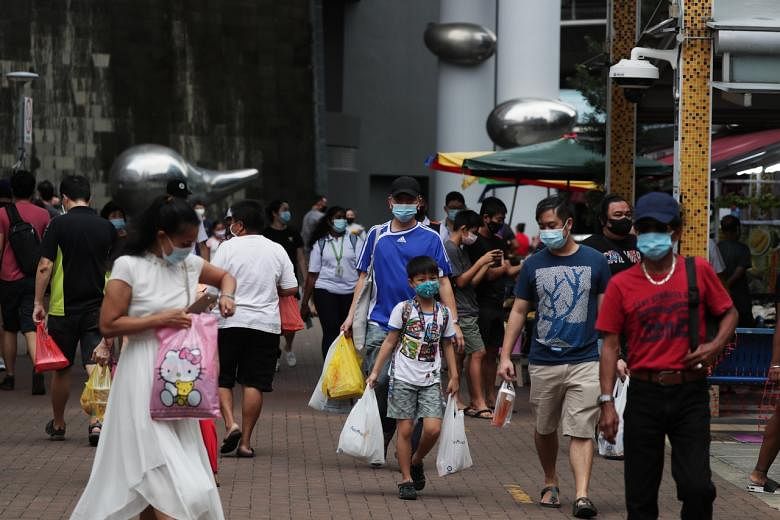SINGAPORE - The United States Centres for Disease Control and Prevention (CDC) advised Americans against travelling to Singapore because it is not aware of the city-state's Covid-19 surveillance test numbers, said Health Minister Ong Ye Kung on Wednesday (Jan 5).
The Ministry of Health is thus engaging both the CDC and the US embassy in Singapore to provide them with the necessary data - which show that positive Covid-19 test rates here are low.
The US on Tuesday reclassified its Covid-19 travel advisory for Singapore to "unknown", citing a lack of data and warning that "even fully vaccinated travellers may be at risk for getting and spreading Covid-19 variants".
This put Singapore in the company of Afghanistan, North Korea and Syria under a category of destinations which Americans are told to avoid because of high infections.
Speaking at a press conference held by the multi-ministry task force handling Covid-19 here, Mr Ong said: "Just to be clear, we know our situation very well."
He noted that more than 150,000 polymerase chain reaction (PCR) tests are administered weekly, which work out to more 21,000 such tests daily. Positive rates for these tests are under 2 per cent, he noted.
Singapore has 145 wastewater testing stations across the island, including in housing estates, dormitories and nursing homes.
"Only a very small handful are registering the presence of Covid-19 viral fragments," Mr Ong added.
"So we are sure that the incidence of Covid-19 in our community is currently low and stable," he said.
But he acknowledged that the new Omicron variant is already in Singapore's community, and that even though community cases are not currently high - accounting for close to 20 per cent of local cases - it would be a matter of time before it multiplies quickly.
"We must be prepared for that," he said.
There were 842 new Covid-19 cases in Singapore as at Tuesday, with the weekly infection growth rate - the ratio of community cases for the past week over the week before - exceeding one for the first time since Nov 12.
This indicates that the number of new weekly Covid-19 cases is increasing.
Mr Ong reiterated that Singapore's response to Omicron, since it was first detected in November last year, was to adopt a cautious containment approach.
Singapore closed its borders to affected countries in Africa, where the strain was first detected, and stepped up the frequency of testing for travellers. It also isolated infected individuals at the National Centre for Infectious Diseases and conducted stringent contact tracing and quarantine for Omicron cases.
"Those measures helped to delay the introduction of the variant into our community and slowed the local spread," said Mr Ong.
"It bought us valuable time to learn about the nature and behaviour of Omicron variants, so that we can better respond to it."












